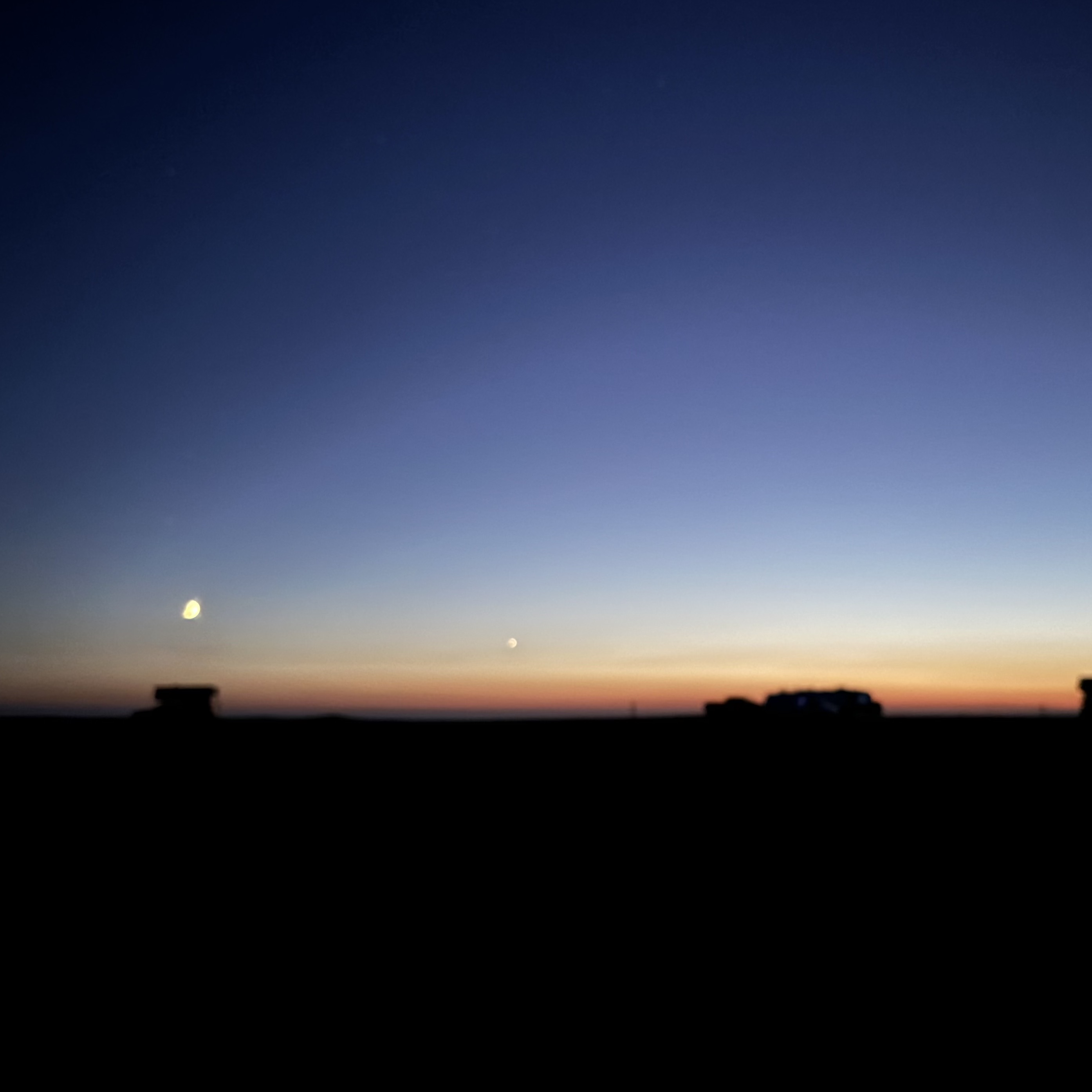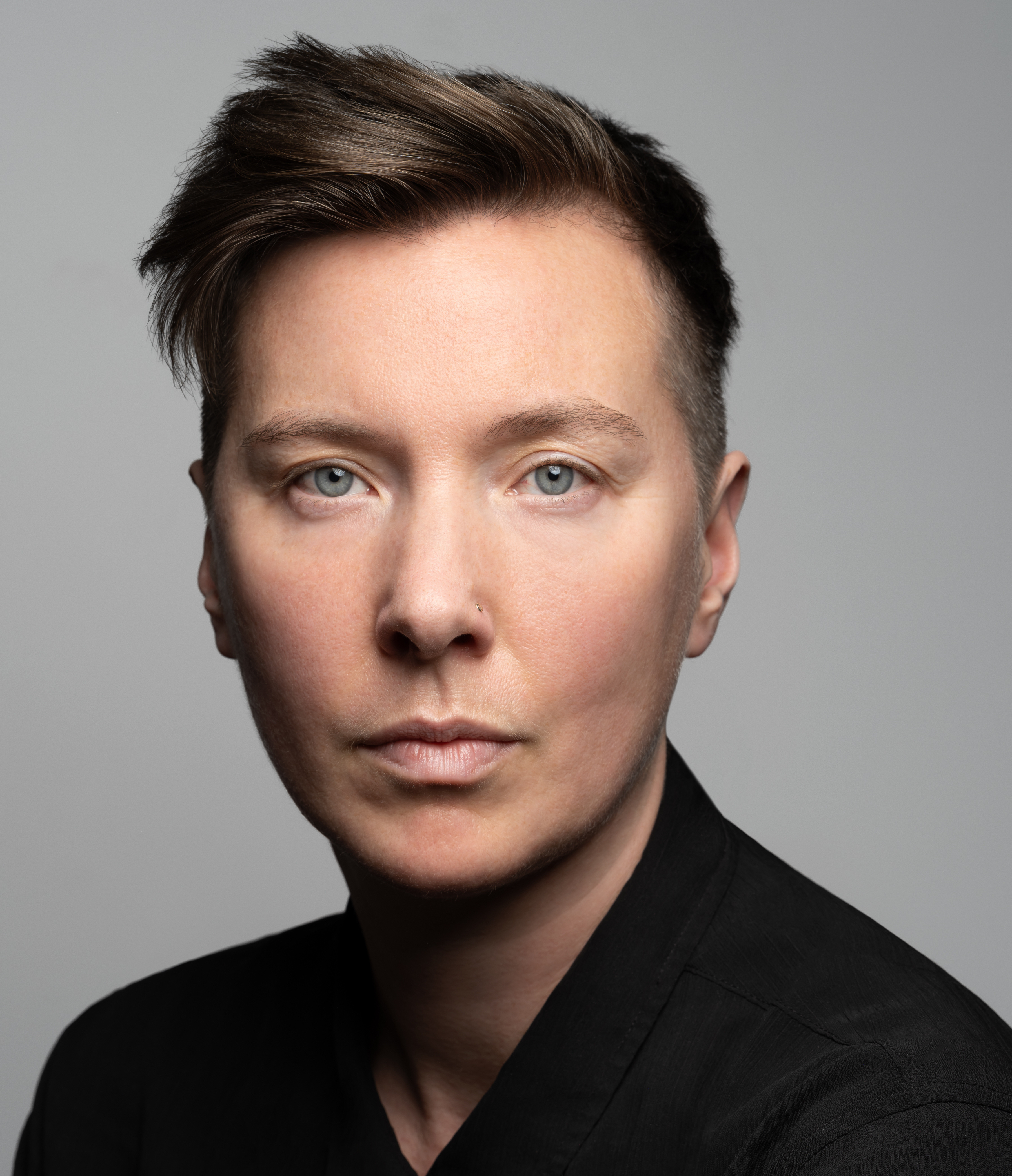Holy Departed
First published in When I Say the Bones I Mean the Bones (Wandering Aengus Press, 2025)
I think I imagined
death would be beautiful,
an empty church, hallowed,
darkened but still
somehow alive. I did not believe
I would dry heave alone
in the bathroom, thinking
how dead death looked.
It was the mouth,
open. The tongue purple
and dry. The eyes half shut.
The body bent
back and the chest thrust
as if in great struggle.
What questions are most
appropriate here? Did any
one of us touch her? Could I
even see her hands?
Desertification
First published in Boston Review’s No Nature issue
Something about a boy who dies
just after his fourth birthday, his brain ravaged
like land cleared of itself, trees
broken off and pulled like teeth,
like land left bare after such
intensive agriculture
nothing of what once lived could live
there again. Of course the difference is
the sweet boy died
and we could hold his lifeless
body in our arms, and he could cry
from confusion and fear
when the doctors strapped him down
that last time to begin
the tests. Of course the real
difference is he was a body not a place,
though, if you ask his mother, she would say he was
his own kind of landscape.
Fire Study
First published on Terrain.org
Thick split logs of Eucalyptus
hurl smoke into a face.
Release the damper and note
the change in pitch,
low whoosh of flame,
mid-ranged cracks the opposite of ice.
What might surprise: coals, orange and constant—
*
You wanted to be left whole,
chips of chinbone free to fall apart.
I’m sorry. What we toss to the wind
flies back into our mouths powdered.
Do we detect a grit? The rift
between ocean cliffs too far to fathom,
the tectonic clip too quick, the grind
of land on land an itch
scraped so long the scar shines.
*
What is the texture of ash on the tongue?
The crematorium burns but bone does not
break apart like skin. What remains
is calcium, the hard crust, bone of bone,
the rigid, twisted bits.
*
On the sink board in the hotel
black ash
like grains of granite. Cigarette smoke
soaked into the sheets.
The window to the courtyard
a mouth screwed shut.
I spend the night waking to the gasps
of my own cravings.
*
If I could have had my way:
the north coast, beach fire,
saltpans boiling down to dust, abalone
feast on the shore: wild mushrooms on toast,
butter and garlic, mist,
and water: breath catching, bone deep
cold, waves that heave
and heave, raindrops
plopping in drift ash,
your own ashes clay colored, dry boluses and free bits,
swirling around us as we’d swim, our dive belts
weighting us down
to the bottom.
*
I went wanting to know
where the smoke goes.
If the door had a window did the people ever look.
If the mandatory box burned first. If a flame at all.
If the bits really did twist.
If twisted how. If small how.
If hard if porous.
*
Sometimes all that is
obvious is the black
peeled surface of the wood stove,
stripped of itself.
Now the flames quick and menace, the sparks
catch on the rug, the heat
envelopes, the dark surrounds,
the smoke rolls
thick up the flue.
*
Now there are hardly any abalone left
to harvest, the poor ocean snails so stressed
they won’t eat. Red tide. Harvest ban.
Your ashes on the side of
a mountain
whose forest just went up in flames.
*
No one promised
you would get the life or death you wanted.
What if at the end nothing
is what you believed you desired. The land and the depths
capable of their own
reinventions.
What if saying this allows longing
to spring up, a bacterial welcome mat,
a kind of cleansing that combusts
close to bone.
"Holy Departed", "Desertification", and "Fire Study:" Three Poems

Amanda Hawkins' debut poetry collection, When I Say the Bones I Mean the Bones, is just out with Wandering Aengus Press. They live in Northern California with their two children and three cats.


